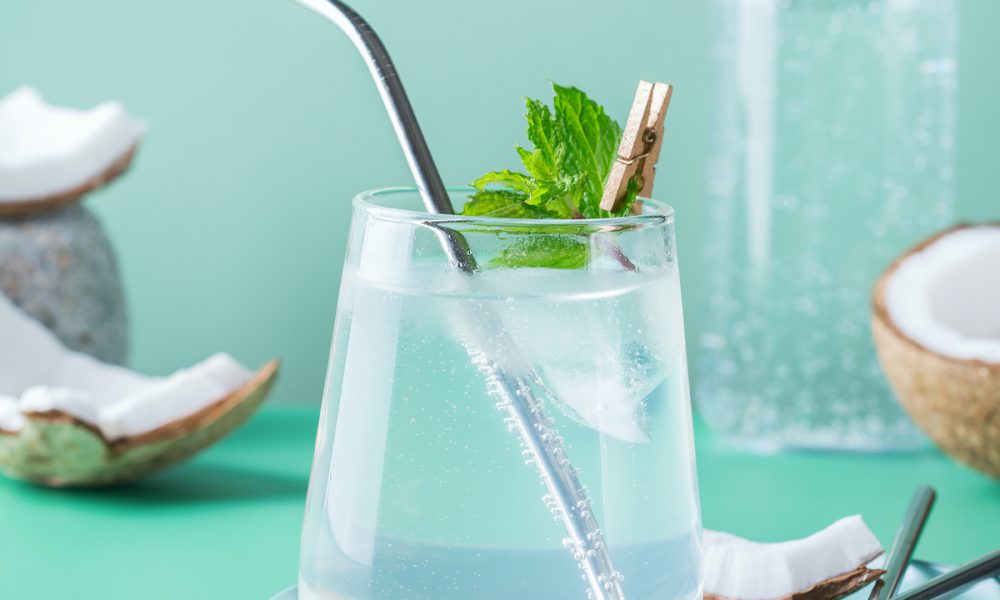
No matter the temperature, keeping your body properly hydrated is crucial to your health. Fluid balance becomes even more important if you have a health condition or you are an athletic person training in the Florida heat. Knowing how much water your body really needs can help improve your health, protect you from heat illness, and keep you alert and active even as the thermostat rises in the summer months.
How Much Water do I Really Need to Drink?
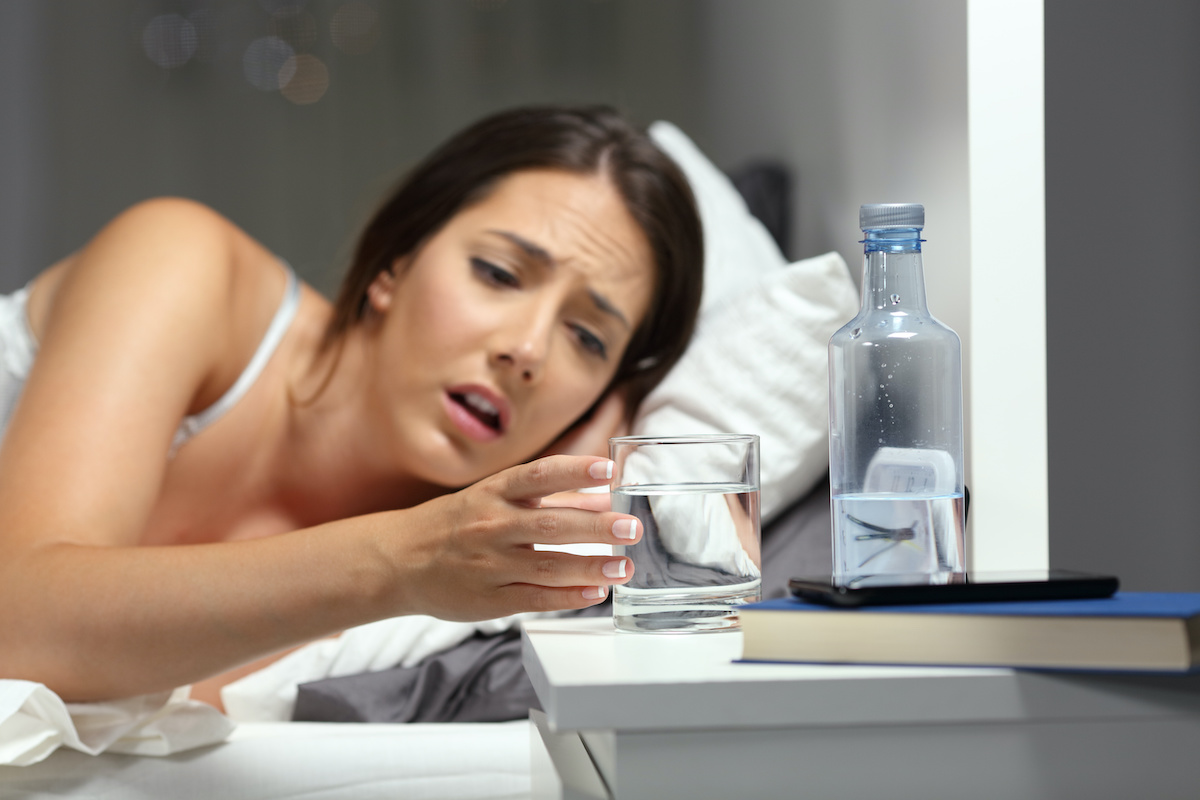 You can’t trust the color of your urine as an indicator of hydration. The problem with this method is that certain foods, supplements, and medications change urine color. As a result , the color of your urine is not a reliable guide for how well you are hydrated. Likewise, your sensation of thirst is NOT a sufficient way to determine your need for water. By the time you sense thirst, your body is already mildly dehydrated.
You can’t trust the color of your urine as an indicator of hydration. The problem with this method is that certain foods, supplements, and medications change urine color. As a result , the color of your urine is not a reliable guide for how well you are hydrated. Likewise, your sensation of thirst is NOT a sufficient way to determine your need for water. By the time you sense thirst, your body is already mildly dehydrated.
Estimate Your Daily Water Requirement
A person’s daily intake of water will vary depending on age, gender, activity level, body composition, health status, activity level, and climate.
The best estimate of your daily water requirement is your body weight:
- Drink one-half (½) your body weight in ounces.
Example: If you weigh 140 pounds, drink 70 ounces of water each day–and that is the recommendation just for daily living.
 Your body needs more water in the following situations:
Your body needs more water in the following situations:
- live in a hot, dry; hot, humid climate
- live at high altitude
- work outdoors
- exercise vigorously
- have a physically demanding job (indoors or outdoors)
- are pregnant or breastfeeding
- are injured
- are experiencing illness symptoms such as vomiting, diarrhea
Also, keep in mind that children and the elderly have different needs from healthy adults; people in these age groups also tend to dehydrate much more quickly. Due to differences in muscle-to-fat ratio (and other biological sex-related factors such as menstruation), women tend to be more prone to dehydration than men.
Why Water Does a Body Good
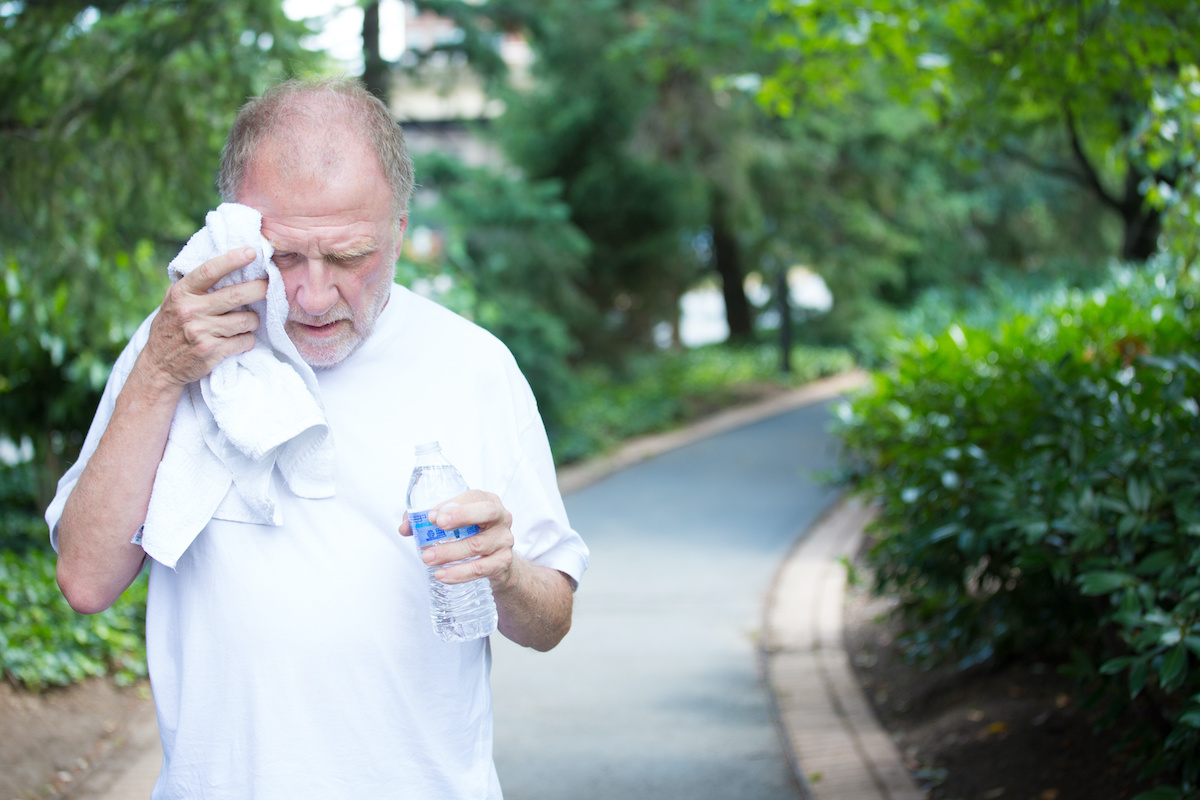 You’ve likely heard that 70% of the body’s weight is water—with variations for age and gender. The reason for this is that water is essential to every cell in the body, not just for breaking a sweat in HIIT class or while body surfing at Clearwater Beach.
You’ve likely heard that 70% of the body’s weight is water—with variations for age and gender. The reason for this is that water is essential to every cell in the body, not just for breaking a sweat in HIIT class or while body surfing at Clearwater Beach.
In your body, water helps to …
- regulate thirst and appetite
- transport nutrients in the bloodstream and the cells
- remove waste products rom the body (through sweat, urination, bowels)
- maintain normal body temperature through sweating and respiration
- facilitate muscle contraction
- maintain good muscle tone
- regulate electrolyte balance
- lubricate and reduce friction in the joints
- maintain pH balance
- nourish the skin
- facilitate digestion
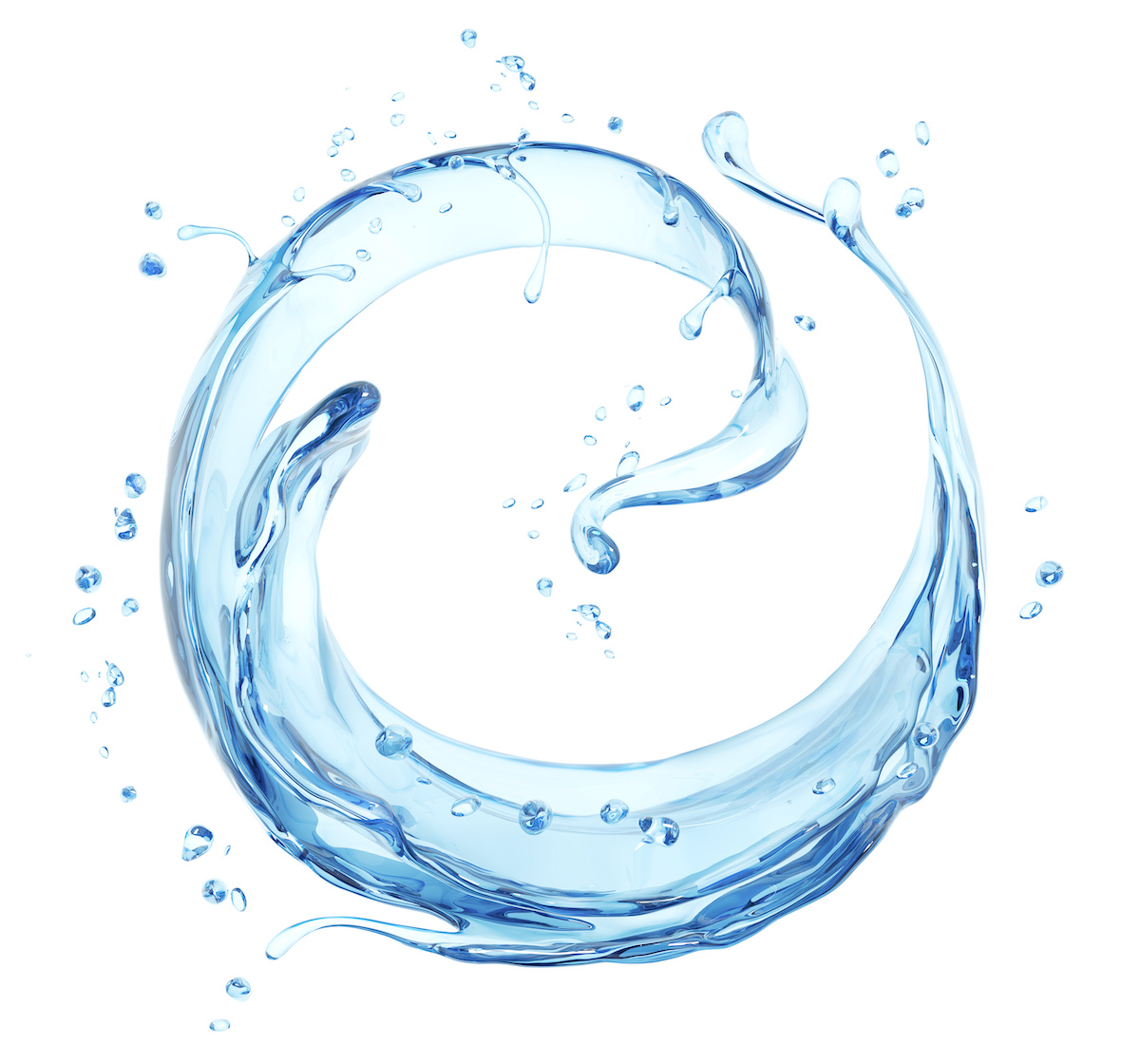 Did you know that each vital organ (heart, brain, lungs, liver, kidneys, etc.) consists of between 70% and 95% water? That’s right…and that means that if you are even “a little bit” dehydrated, that can can disrupt optimal function of these organs, leading to life-threatening conditions.
Did you know that each vital organ (heart, brain, lungs, liver, kidneys, etc.) consists of between 70% and 95% water? That’s right…and that means that if you are even “a little bit” dehydrated, that can can disrupt optimal function of these organs, leading to life-threatening conditions.
Your ability to stay hydrated protects your body all day long, even when temperatures are mild, whether you are working around the house, in a physically demanding job, or out playing in the sand.
When Do I Need an Electrolyte Replacement Drink?
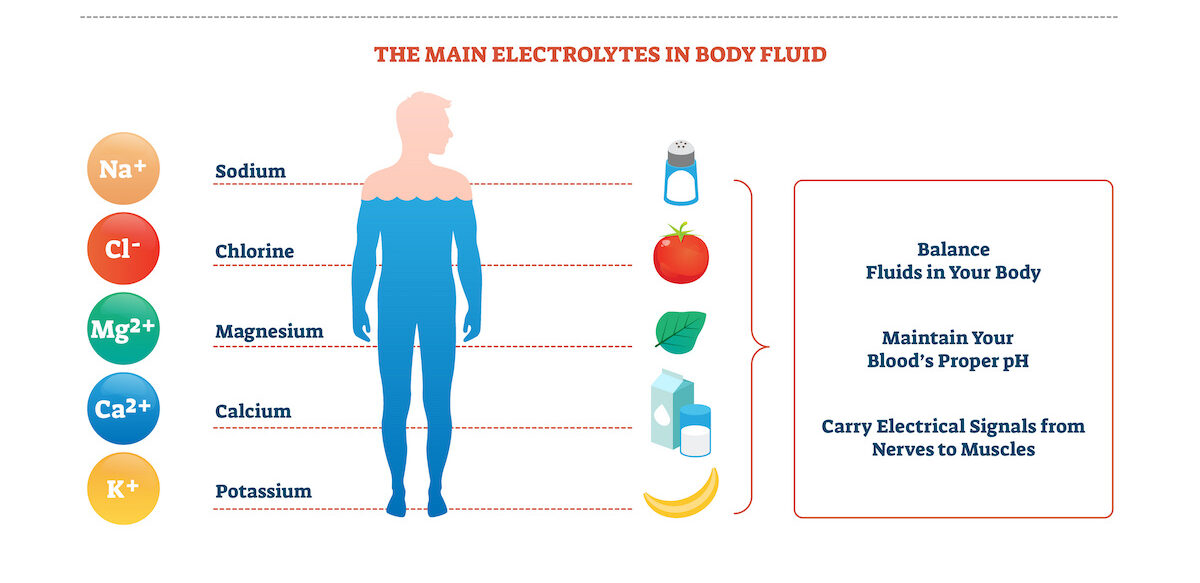 The short answer is most people do not need an electrolyte replacement drink. It’s actually quite difficult for the average athlete to drain their electrolyte stores, unless you are starting out in an already dehydrated state.
The short answer is most people do not need an electrolyte replacement drink. It’s actually quite difficult for the average athlete to drain their electrolyte stores, unless you are starting out in an already dehydrated state.
Other situations in which you might need an electrolyte replacement beverage include times when you are:
- rehydrating after intense training or competition in the heat
- preparing for a tournament (start hydrating 1-2 days before)
- recovering from dehydration caused by illness or injury*
- spending several days in a hotter /more humid climate than where you live and want to prepare your body to acclimate to the change in temperature/humidity level
- pregnant or nursing*
- taking medications that cause dehydration*
BE AWARE! Many commercial electrolyte and sport beverages contain high amounts of sugar and/or artificial sweeteners and colorants. Some even contain high levels of caffeine, which can further dehydrate you!
 Pure, fresh drinking water that is lightly sweetened with fresh fruit, herbs, or locally harvested honey is an optimal beverage choice for hydration. Additionally, nibbling on fruits and veggies that have a high water content will boost hydration.
Pure, fresh drinking water that is lightly sweetened with fresh fruit, herbs, or locally harvested honey is an optimal beverage choice for hydration. Additionally, nibbling on fruits and veggies that have a high water content will boost hydration.
*Always check with your doctor and/or a trusted pharmacist before taking any nutritional supplement intended to promote hydration.
There may be times in which a trace mineral supplement would be necessary for you to maintain adequate hydration. You can learn more about trace minerals by connecting with a member of our pharmacy team. (Learn more about Trace Minerals: ConcenTrace® Trace Mineral Drops – Glass)
Sweet Ways to Get Hydrated
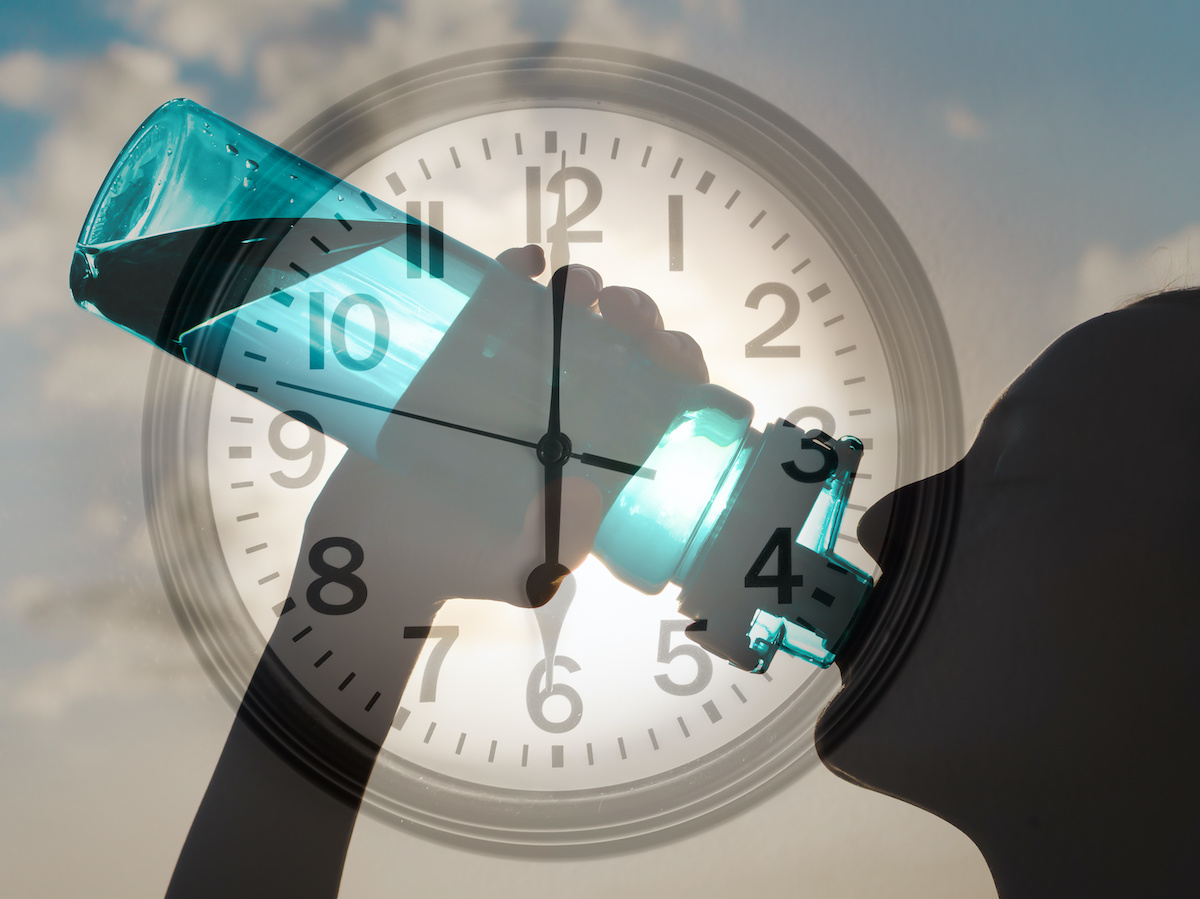 Living in Palm Harbor and the beach towns towns of Pinellas County requires that you drink often throughout the day. If you struggle to drink pure H20, consider trying these other fun and flavorful ways to get the water your body needs:
Living in Palm Harbor and the beach towns towns of Pinellas County requires that you drink often throughout the day. If you struggle to drink pure H20, consider trying these other fun and flavorful ways to get the water your body needs:
- Try a Fruity Twist. Add fresh or frozen berries, melon, orange, lemon, or lime to your water. These will make for a beautiful and naturally sweetened glass of water.
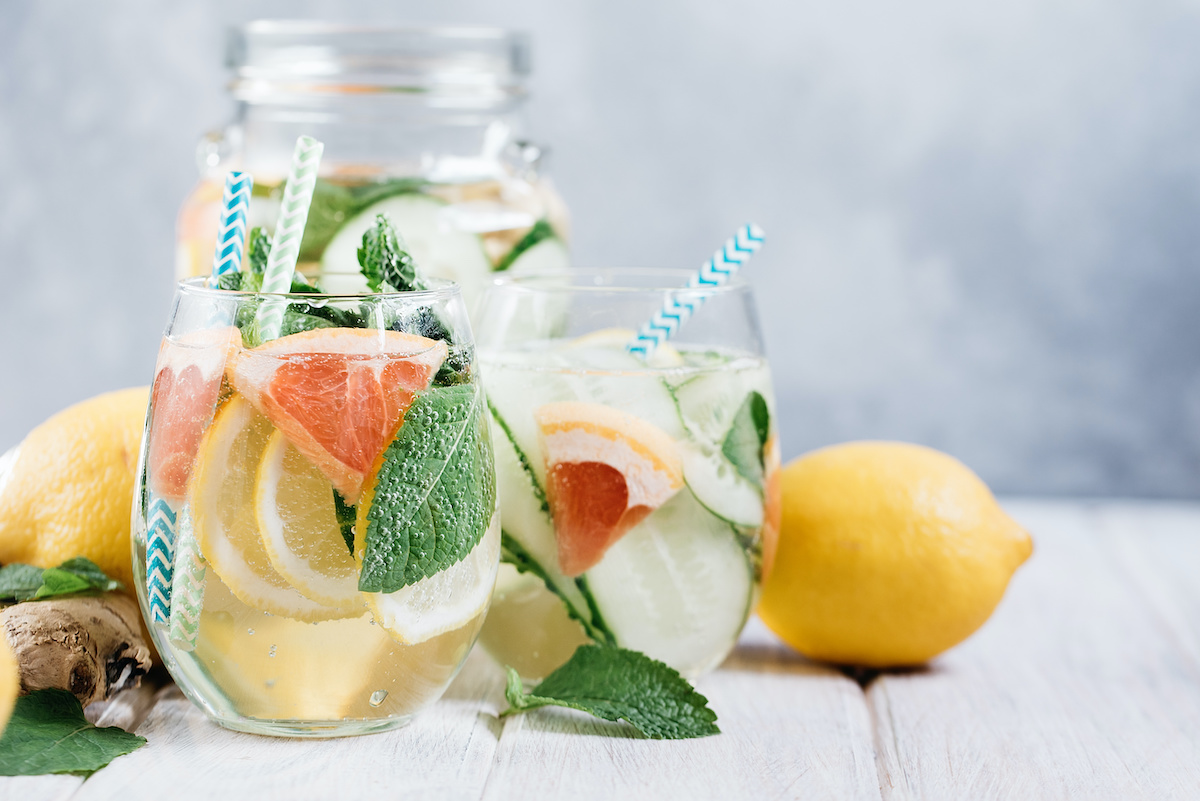
- Get Fizzy. Bubbly (carbonated) spring water hits the spot on a hot day. Look for varieties that do not have added sweetener. You can make your own “virgin sangria” by pouring carbonated water over frozen fruit and ice.
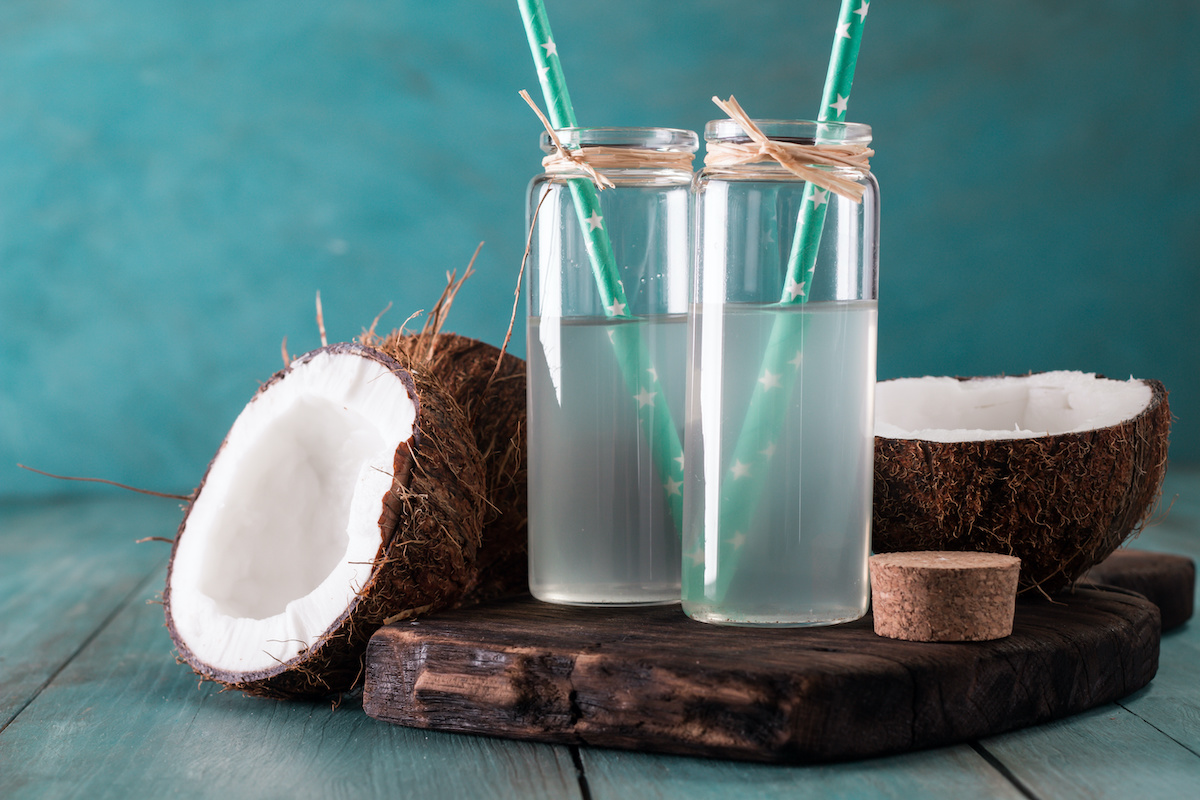
- Go Coconut. Coconut water is rich in natural electrolytes. While not scientifically proven, theoretically it can boost hydration and you may enjoy the flavor more than plain water.
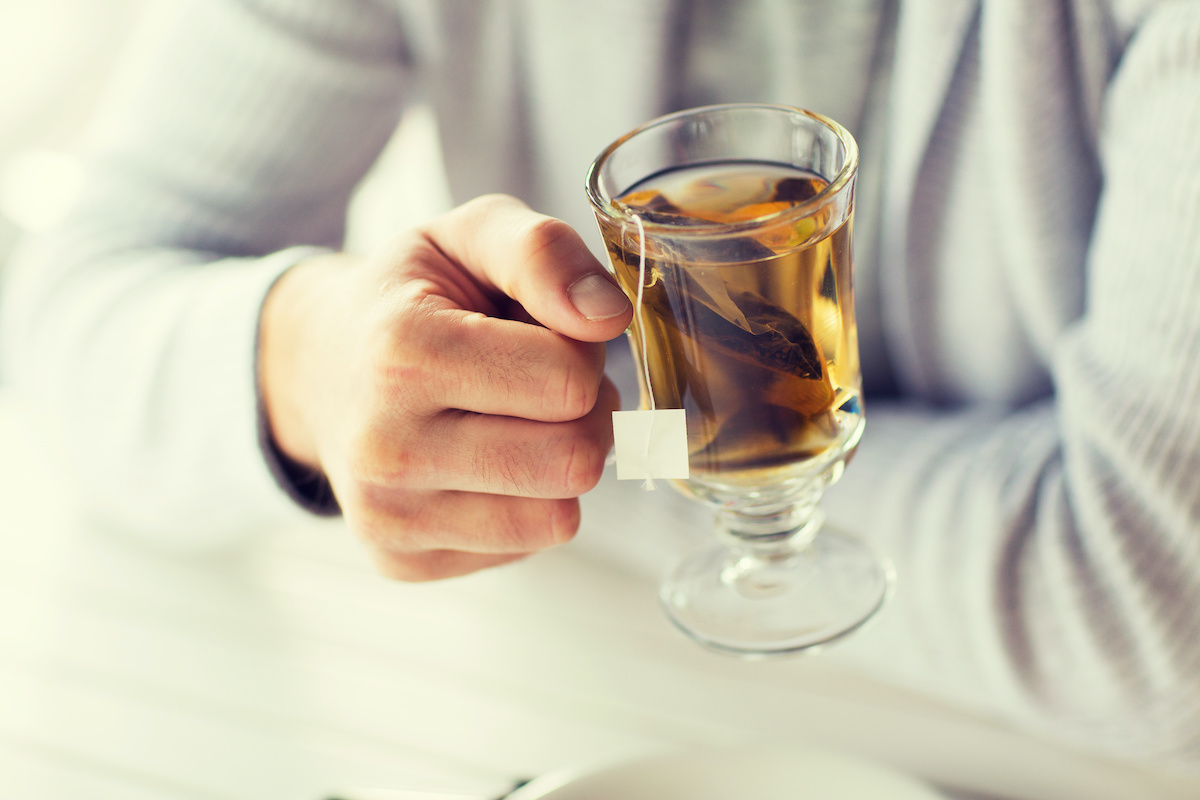
- Tea Time. Caffein-free iced herbal tea and green tea can count toward your daily water intake. Also, nutrients rom green teas support healthy hydration.
- Frozen Fruit Pops. Grapes, pineapple, berries, kiwi and many other fruits are excellent choices for frozen delights. You can enjoy frozen fruit as is, or blend it into smoothies or a frozen dessert.
If you need to add a sweetener, choose natural sweetener such as local Florida honey or agave rather than processed granular sugar.
Are You Dehydrated?
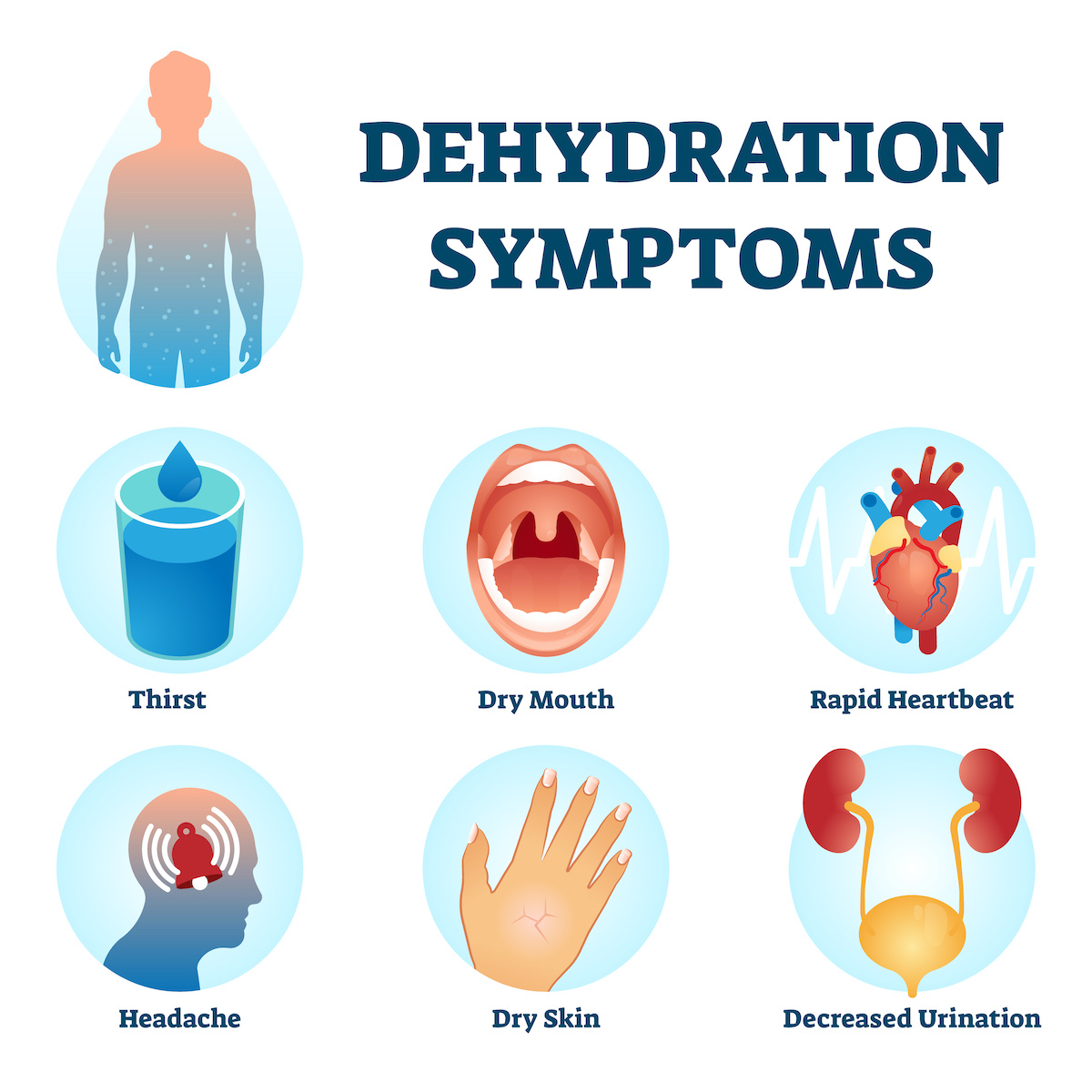 Dehydration means your body lacks the water required to function. You can become dehydrated if you don’t replace fluids lost through exercise, exposure to the elements, or from vomiting/diarrhea. Very quickly, dehydration can become a life-threatening emergency.
Dehydration means your body lacks the water required to function. You can become dehydrated if you don’t replace fluids lost through exercise, exposure to the elements, or from vomiting/diarrhea. Very quickly, dehydration can become a life-threatening emergency.
Signs of dehydration
Mild Dehydration (aka Inadequate Hydration):dry mouth, irritability, headaches and muscle cramps. You may feel mildly constipated as the body struggles to eliminate waste products.
Moderate Dehydration: dizziness, clumsy, exhausted, racing heartbeat. You may be unable to urinate, to stand, or focus your eyes.
Severe Dehydration: vital organs begin to shut down. Without water, you will enter a coma and die.
BE AWARE! Dehydration progresses quickly. Don’t ignore the early warning signs!
An Important, Final Note about Dehydration
If you’ve experienced symptoms of dehydration and aren’t able to recover despite increasing fluid intake and resting, then you need to consult with a physician. There could be other medical reasons for the way you feel. Dehydration is never to be taken lightly, no matter the temperature outside.
Resources
Jequier E, Constant F. “Water as an essential nutrient: the physiological basis of hydration.” Eur J Clin Nutr. (2010) 64:115–123.
Heinz V., ““Drink at least eight glasses of water a day.” Really? Is there scientific evidence for “8 × 8”?” Amer J Physio – Regulatory, Integrative and Comparative Physiology (1 November 2002). 283:5, R993-R1004
Long, M. “Sports Performance and Nutrition: A comprehensive guide.” Naturopathic Currents. (2015 April – Web).
SFGate.com “Why do we need to drink water?”
Centers for Disease Control. “Plain water, the healthier choice.”
Popkin, Barry M., Kristen E. D’Anci, and Irwin H. Rosenberg. “Water, Hydration and Health.” Nutrition reviews 68.8 (2010): 439–458. PMC.